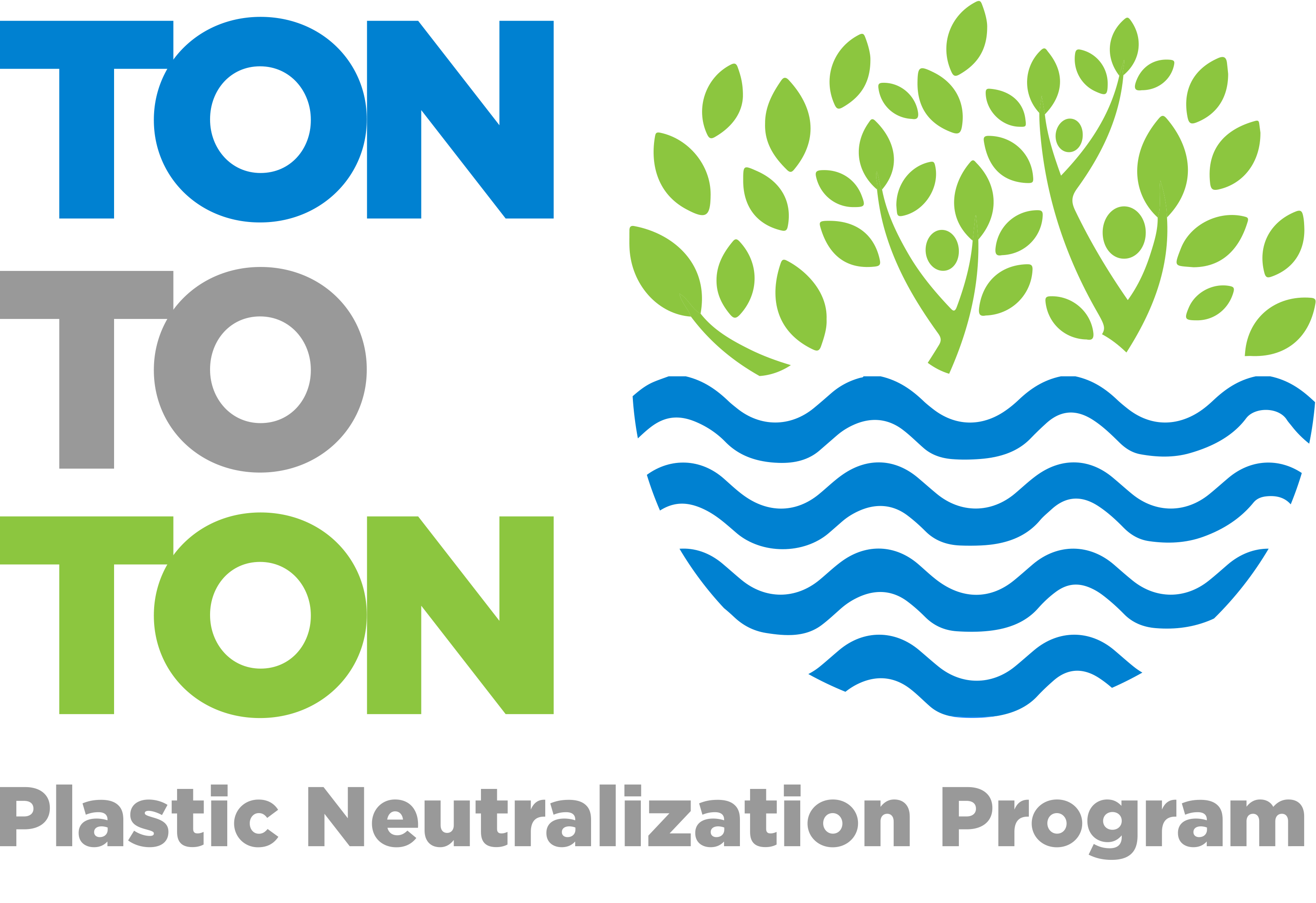TONTOTON Explains What Sustainable Changes Major Plastic Polluting Industries Can Make
Industry: Environment
An overview on three of the major plastic polluting industries, how they contribute to the plastic pollution, and the changes they can make to revert this.
Hồ Chí Minh (PRUnderground) August 3rd, 2021
Although every human has a responsibility to the Earth, the greatest polluters in the world are mass industries. In fact, 63% of plastic waste collected worldwide in 2020 came from a consumer brand.
Logically, it makes sense. The more items that we produce and consume, the more waste will be created. Mass production of packaged goods, beauty products, and other daily items will have an impact.
This means that companies have a critical role to play in the next few decades if we hope to reverse the climate change that threatens life on Earth. While every industry contributes to plastic waste and other environmental hazards, some industries stand above the rest.
In this article we will focus on three industries that contribute greatly to plastic waste—beauty, fashion, and fast-moving consumer goods—how companies within these industries are working to reduce their plastic waste, and how your company, no matter what industry you’re in, can make small changes that will result in huge impact.
In what ways are beauty, fashion, and FMCG companies contributing to plastic waste?
There are three main ways that massive industries—like beauty, fashion, and FMCG—are contributing to plastic waste: unnecessary packaging, nonrecyclable packaging, and microplastics.
Unnecessary packaging
One wasteful element that may or may not be immediately obvious is unnecessary packaging. This often occurs when fruits like apples or oranges that already have a natural peel are individually wrapped in cardboard or plastic, when items are double packaged (such as a tube of toothpaste sold in a cardboard box), or when socks and underwear are sold in plastic packaging.
Unnecessary packaging is typically used for ease of transport, to group certain items together, or for sanitary purposes. However, many of these uses are simply a matter of convenience, and there’s no real need for this extra plastic.
Non-recyclable packaging
Not all plastic can be recycled. While there are other ways of dealing with these plastics, such as co-processing, these types of plastics are more likely to end up in a landfill or as ocean-bound plastic. Many single-use plastics, like shrink wrap, fall under this category. When you’re at the store, these plastics can add up quickly.
However, even if your shampoo, soda, or other item is packaged in a recyclable plastic, less than 9% of that plastic gets recycled and most definitely ends up polluting the soil and water. This means that companies must do more than offer recycled products. They need to incentivize their customers to recycle the packaging.
Microplastics
Every time you go to the store, the abundance of single-use plastic is clear. From shopping bags to superfluous packaging, the immense plastic waste cannot be ignored.
However, a massive danger lies in plastics that are less obvious: microplastics.
Microplastics are tiny pieces of plastic that are used in consumable products. These include things such as tiny beads found in exfoliators, the plastic found in brushes, and hair-like plastic strings used in synthetic fabrics.
Because microplastics are so small, they are difficult to manage, and some microplastics (like those found in exfoliators) are washed down the drain during use, directly entering our waterways where they can be consumed by marine wildlife and even humans.
Some research suggests that only 6% of plastic waste is visible. The rest are microplastics that are either designed to be small or have broken down to a tiny size. Our oceans and waterways are filled with synthetic fibers, non-biodegradable beads, and other plastics that are toxic to ingest. This doesn’t just endanger wildlife; humans are in danger of ingesting this plastic as well.
How are these industries making sustainable changes?
As it’s become more clear that companies need to make massive changes in order to reverse the damage done to our environment, more companies are making changes in order to minimize their plastic footprint.
‘Within the beauty industry, some companies are opting for dry equivalents to liquid products in order to eliminate plastic bottle usage (for example, producing bar shampoo instead of liquid shampoo). Many companies have stopped using beads as an exfoliant, instead opting for natural options like sand or sugar. Others offer refillable options, encouraging their customers to bring their own bottles and other reusable packaging.
Fashion companies are working to limit their plastic footprints by using recycled plastic from bottles, fishing nets, and other sources in their synthetic fabrics. Thirty-two companies and 150 brands have also joined the Fashion Pact: a pledge to reduce the use of single-use packaging. However, the fashion industry is still far behind; the advent of fast fashion (the creation of seasonal styles that gets replaced multiple times per year) means that even if companies are using recycled plastic in their synthetic fabric, people are still throwing away clothing in favor of new styles, and the waste problem isn’t truly being solved. In order to reduce plastic waste within the fashion industry, a refocus on secondhand clothing and fabrics needs to take place.
The FMCG industry is making small strides by offering recyclable plastic options and funding programs to help get rid of plastic waste and, therefore, offsetting their plastic footprint. However, in spite of the fact that this industry is by far the greatest contributor to plastic waste, the big corporations are also participating in “greenwashing” or the practice of misleading consumers into believing that they are doing more for the environment than they really are. Recently, one major FMCG corporation attempted to influence the academic communities and the media to make it look as though they were making more sustainable choices than they actually were.
The lesson to be learned here is that, while many companies within the three biggest plastic waste contributors are making creative and positive choices in order to reduce their plastic footprint, more needs to be done.
Transformational change must be pursued in order for any difference to be made.
How can your company reduce your plastic footprint?
Consumers don’t just want to support sustainable companies. They are actively staying away from companies that fail to make sustainable decisions. This means that you must switch to a sustainable business model if you want to remain competitive. Shortcuts can’t be made; big industry names are currently under fire for their greenwashing practices, proving that consumers are savvy. You must make transformational changes, and you should be transparent about it.
Three transformational changes that your company can easily make is to reduce the use of microplastics in your products, eliminate unnecessary packaging (a win-win situation since you’ll save on packaging costs), and use only recyclable, reusable, and/or compostable packaging. These are relatively simple choices that can make a huge impact.
To offset the remaining plastic waste, invest in plastic credits. The plastic credits that you purchase through TONTOTON fund projects that minimize ocean-bound plastic waste, removes plastic waste in a sustainable way, and aids communities by creating safer work environments for waste pickers. These projects are certified by a third party, so you know that the projects that your plastic credits are funding truly manage plastic waste in a sustainable way.
Purchasing plastic credits can be a solid solution that provides a positive impact to the environment and affected communities immediately. This gives your company the chance to take some time to explore sustainable business options for long term environmental success.
About TONTOTON
TONTOTON is a plastic neutralization program that offers a sustainable and environmentally friendly solution to reduce ocean plastic, by rescuing plastic before it reaches the oceans. The program has the potential to help to make a significant change in plastic waste treatment in Vietnam and help reduce ocean-bound plastic. TONTOTON solution is the missing part of completing the recycling cycle on single-use plastic. Until now, only recyclable plastic was integrated into the recycling industry. The project builds personalized plans for companies to neutralize their plastic footprint, on the same concept as carbon footprint. It also collaborates with local communities to collect a predefined amount of ocean-bound plastic on behalf of companies, equivalent to their overall plastic consumption or a specific product. TONTOTON is now the first company worldwide certified under the Ocean Bound Plastic Neutrality Standard.







